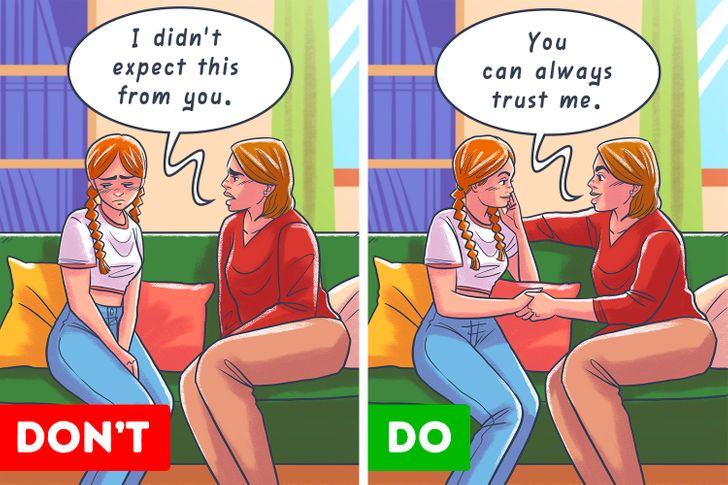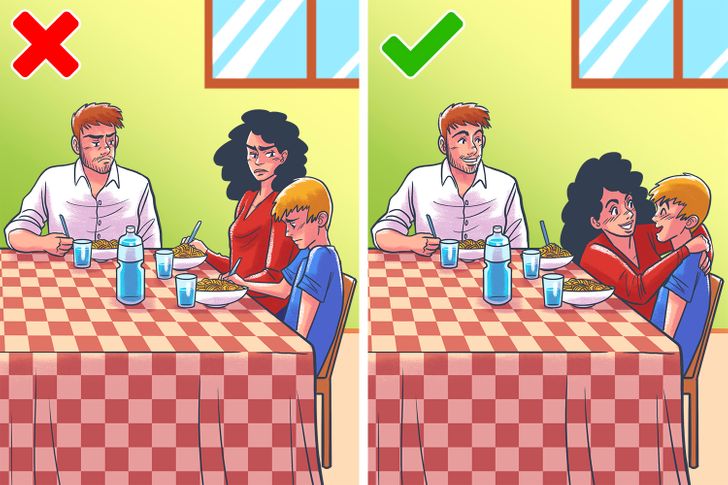20 Twitter Users Shared the Funny Situations They Went Through With a Child Therapist


Recently, some newspaper headlines were devoted to the discussion of the gender identity of one of the children of Angelina Jolie and Brad Pitt. Their daughter, Shiloh, arrived on the red carpet dressed as a girl after 4 years of wearing men’s clothes and calling herself John. Such cases show that our world is full of diversity, and it’s okay for children to explore their gender identity. But sometimes, parents don’t know how to react to such decisions made by their children.
Our Bright Side team has collected some advice for parents on how to help and support their child if he or she is questioning their gender identity.

Coming out can be one of the toughest things for people who don’t fall under traditional sexual or gender norms to do. So if your child shares such a choice with you, try not only to support them but also show them how much you appreciate their trust.
Even if you don’t understand what is going on and it’s hard for you to accept the new reality, try to respect this choice in any case. Make the communication with them open, share your thoughts constructively, and let your child know you love them in any case.

If your child is exploring their gender, you should explore the terms related to gender identity and the differences between identities to understand them better. First, we should note that gender identity and sexual orientation are expressed in different terms. As a pediatric endocrinologist, Julia Cartaya, explains, “Sexual orientation is who you go to bed with, but gender identity is who you go to bed as.”
Different gender identity terms are also important in terms of how your child will be referred to in conversation. So when you’re speaking to people, you need to be sure to use the correct pronouns, whether it’s he, she, or they.

Gender identity is a way you personally interpret your gender and how you want the world to see you. You can’t change someone’s gender identity because you don’t like it or believe it’s wrong, even if it concerns your child.
So if your child tells you that they are questioning their gender and you’re not feeling good about it, ask yourself questions like “Is the gender identity more important for me than the happiness, health, and fulfillment of my child?” or “Why am I angry or scared at the possibility of my child being trans?”

Each parent should encourage their children to be themselves and be comfortable with it, despite the stereotypes that exist in our society. So let your child play with toys and wear outfits that he/she likes. When we don’t put a high emphasis on gender, children have more opportunities for self-expression. By doing so, your child will not be afraid to come to you to talk about questions and issues about their identity.

It’s important to make sure that your child isn’t bullied in school. To ensure their safety, it’s better to talk to teachers at their school beforehand. Maybe organizing gender training for students will be a good idea. This may prevent bias and discrimination from other kids.
Discuss with teachers things like which bathroom your child will use, how your child should be addressed, and in which sports or other teams they will participate. Moreover, you may talk to other parents about the gender identity of your child so they will be aware too.

Sometimes it’s hard to identify as LGBTQ+ among students who don’t understand what it means and what it feels like. So no matter how supportive and friendly the friends of your child are, it will be useful for them to know people from the same community.
It’s great if your child makes friends from the LGBTQ+ environment that have had the same experiences and can better understand them. There are even special camps where LGBTQ+ children and teenagers can socialize with each other.
Can you also add some other words of advice for parents whose children want to change their gender?
Angelina Jolie’s unique parenting style is further exemplified by her ten family rules, which include a non-traditional educational approach, allowing junk food, not encouraging her children to follow in her footsteps, and promoting freedom and diversity.











